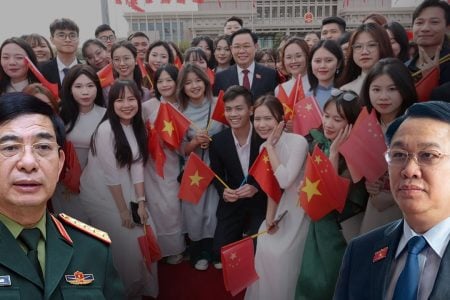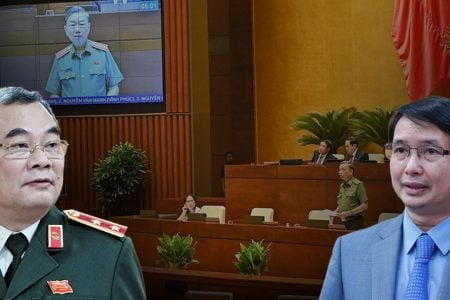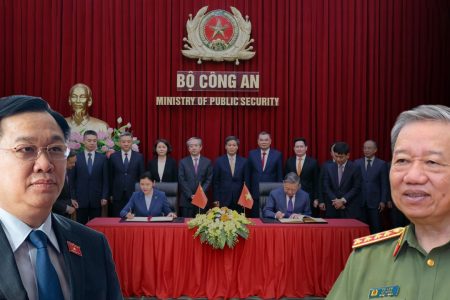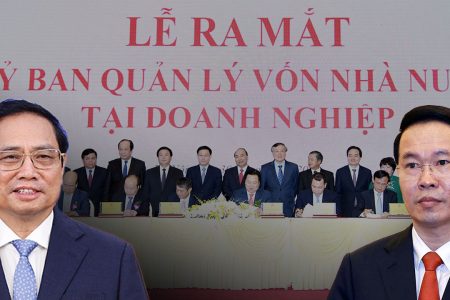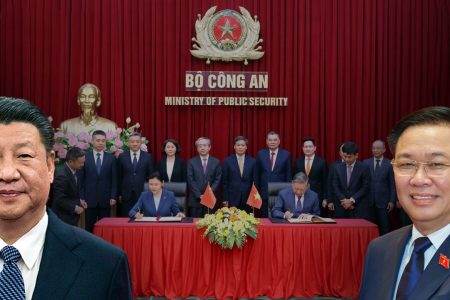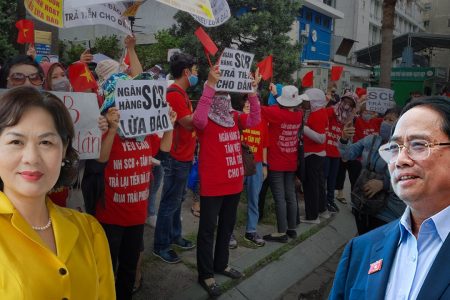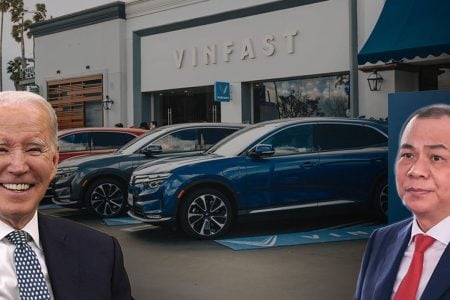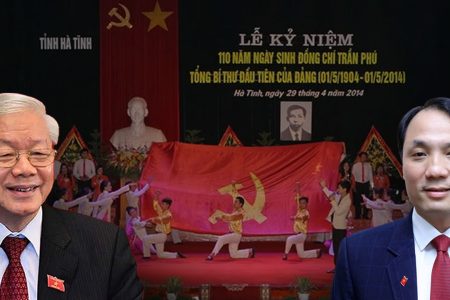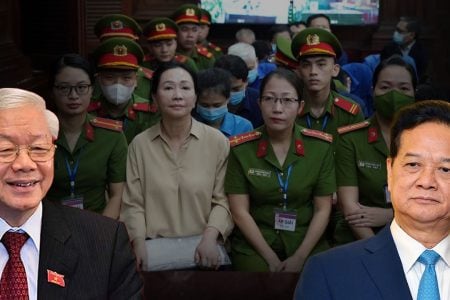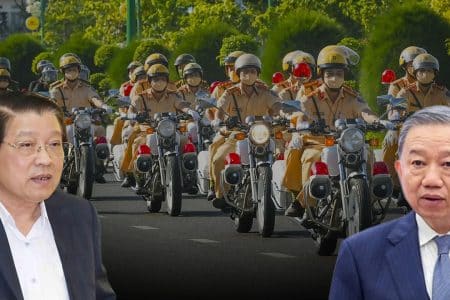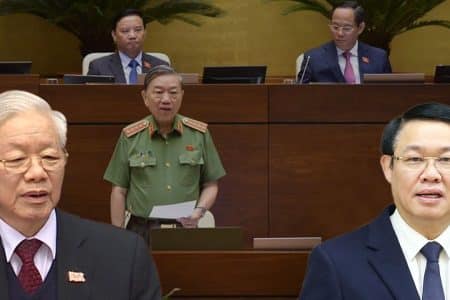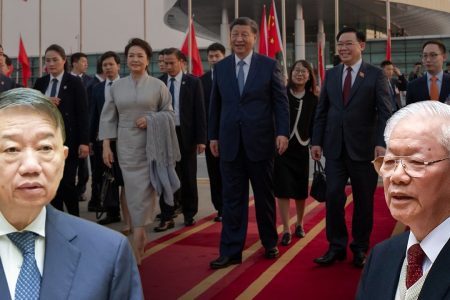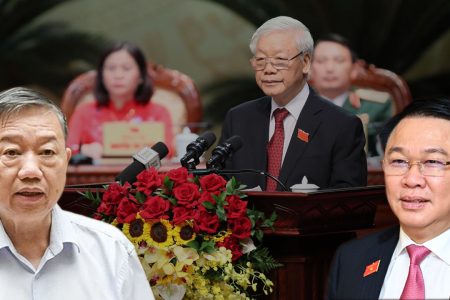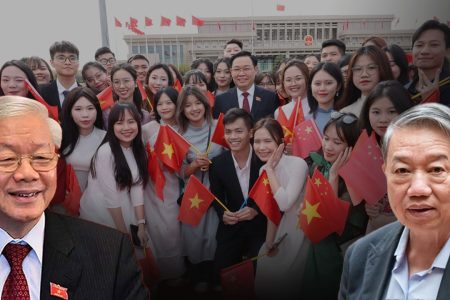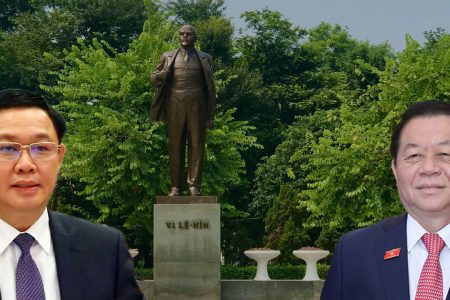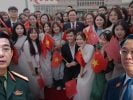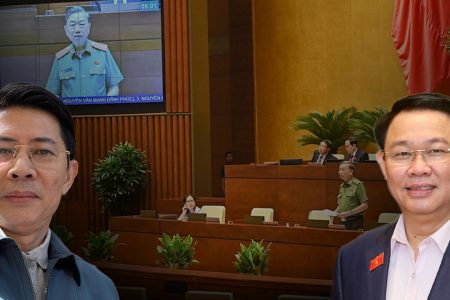
The problem to decipher here is what is behind VTV1’s decision to show the movie about the war of China’s invasion on February 17, 1979, at the golden hour of VTV1? Is this the “pivot” of the Communist Party of Vietnam (CPV)’s Propaganda and Education Department? Or simply, this is a message to send to China, or this is just a propaganda move like many other publications, after being green-lighted by relevant authorities?
On the evening of August 11, 2020, many soldiers left from the border war on February 17, 1979, cried while watching the movie “Television Chronicles: 1979.” As for domestic and foreign experts, they are in all dimensions which are very ordinary but very unusual related to a historical event 41 years ago. If in a democratic society, this is not uncommon. “I disapprove of what you say, but I will defend to the death your right to say it” (A certain landlord taught like that). But in our country, in other words, and thinking differently from the regime, the consequence will be imprisonment or at least temporarily detained for investigation … Then this is definitely a media phenomenon. The commentary in the film is not the language that has long been hidden under the epiphany to cover up about “foreign country” or “neighboring country sharing a border with Vietnam in Quang Ninh” about China.
The problem to be decoded is what is the mystery behind the decision to “release” the movie in the golden hour by Vo Van Thuong and Thuan Huu, the two leading figures in the “Editorial Board” of the 700-800 newspapers and magazines in Vietnam today? Is it possible: i) This is the “pivot” of the CPV’s Central Department on Propaganda and Education, perhaps even higher, of a certain fraction in the top power apparatus? ii) Or simply, is this a message to China, that the Chinese military should not cross the “red line” in the Vietnam-China relations? and iii) After all, it’s nothing, it’s just a propaganda movie like any other publication, it’s just a “daily story” or a little better, it’s just a pre-period dopping prior to the 13th National Congress of the ruling party?
In contrast to eclecticism, the author does not equally divide the probabilities for each possibility. Regarding the first scenario, I myself am not very interested in the forecast that Vietnam will have a certain change or breakthrough of the Central Department of Propaganda and Education in its policy towards China (therefore, only bet about 10%). The Vietnam-China relations are too complicated, too thorny to the sudden appearance of a person similar to Taiwanese President Tsai Ing-wen before or after the 13th National Congress. Hanoi used to study Taiwan’s principles in relation to Red China: persevere peace between the two strait coasts, protect domestic democracy, maintain a dialogue with the mainland, etc. The Sino-Vietnamese relations are too complicated for Hanoi to be able to refer to the way of Taipei, simply turn the steering wheel “shift axis” by showing a historical film.

Although US changing policy towards China is real and not an election campaign, the US will be tougher on both declaring and acting on the South China Sea and other issues in the relationship between the two giant countries, Vietnam will still be very cautious in policy towards China. According to Professor Tran Ngoc Vuong, from Hanoi National University, “far away countries cannot save near fire,” whatever random or inevitable factors will appear in the world or in the region today, China’s ambitions to expand towards Vietnam on land and islands will not change. This, the Vietnamese leaders of the old generations as well as modern generations are very aware. Therefore, after the message of the Global Times (Global Times) to Hanoi, policymakers sitting in Hanoi are quite sober to not “pivot” at the current turbulent time in the country as well as above the international arena.
Regarding the second scenario, the writer also only bets 20% on the confirmation, Vietnam wants to pass a specific message at a specific time to China. The Vietnam-China relationship is inherently taking place on many channels. Many times, Hanoi has had to “suffocate” in a jumble of conflicting events and trends. Reflect on the golden headline in the bilateral relationship between “tidal dynasties” and “secularism“: “Vietnam is more assertive about the South China Sea, China lends money” is a headline on RFI on July 20, a website from France (which has not been disguised as newspapers of hostile forces). What are the two sides of the conflict in one title if not implied: Beijing intends to lure Vietnam after the US declared that China’s claim to sovereignty over almost the entire South China Sea is unjust legal? Review the statement “Teach Vietnam a lesson” to remind the upcoming lessons Beijing might be about to “teach” Hanoi?

The head of the Vietnamese government repeatedly says that the regime will not make sovereignty concessions with China in exchange for economic interests. But in reality, that determination has not always stood up to the harsh and persistent actions of China in the blatant and illegal encroachments on Vietnam’s exclusive economic zones (EEZs) in the South China Sea (East Sea). The fact that Vietnam has just lost a large amount of money to compensate foreign partners for having to cancel many oil contracts in its EEZs is a testament to the triumph of compromising thinking in the leadership team. It was July 13, the US promised to support the countries in Southeast Asia that were bullied by China and Washington has also drawn a “red line” warning China should not be crossed. “Drizzle with the rain”, does Hanoi want to tell Beijing that letting the Vietnamese people anger would endanger China’s own interests?
The author bets 70% in the third scenario: showing the movie on such a vague occasion is just a show. Performing to stir up public opinion is at a standstill in the face of crisis risks, from confidence to the economy, from pandemic to Sino-US strategic competition. In the context of COVID-19 pandemic Beijing still does not leave Vietnam in peace, still frantically exercises, frantically threatens to occupy more islands in the South China Sea, so warning the public with a historical story is not redundant. “When we watched all the documentaries… we cried. All the misery of our country is due to the arrangement of great powers and China has used it to force Vietnam into the path of service to China,” said South China Sea researcher Dinh Kim Phuc. So from now on, “Give Caesar whatever you pay to Caesar!” The film is a doping dose for the minds trying to forget about the war.
Not to mention the Sino-US conflict, just discussing the process of responding to the Chinese shooting to rob or besiege some islands in the Truong Sa (Spratlys), the “release” of the above documentary film is very useful, whatever the green-lighters’ intentions. According to Charlie Lyons Jones, from the Australian Institute for Strategic Studies, China has now placed an emphasis on preventing the US Navy from entering the U-shaped line. China has strengthened its air defense force and has built up a defense barrier of missiles and special bomber aircraft targeting warships, Mr. Jones commented. When the country’s independence and sovereignty are threatened, the descendants of warriors from the old battlefields – Dien Bien Phu (1954), Ho Chi Minh (1975), border warfare (1979) – would be the first people volunteering to go to battle. Although today’s generation knows very well that, after all, wars, regardless of victory or defeat, the people will still be the losers.
Thoibao.de (Translated)
Source: https://www.rfa.org/vietnamese/news/blog/decipher-a-media-signal-08152020095638.html




